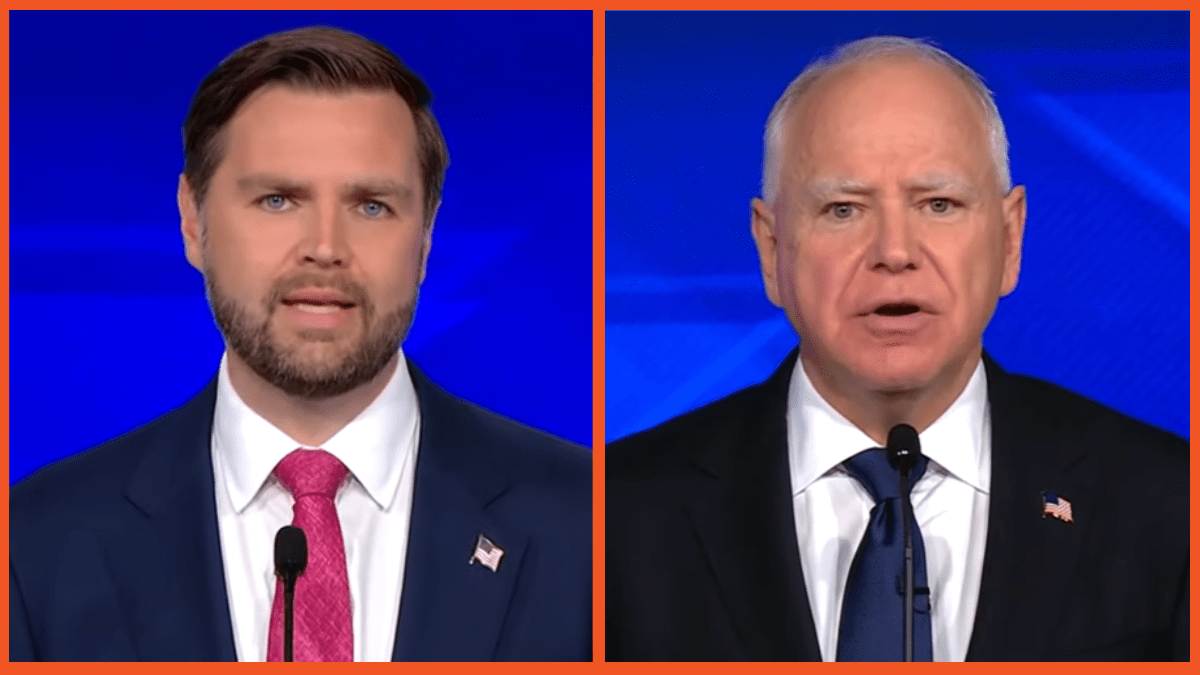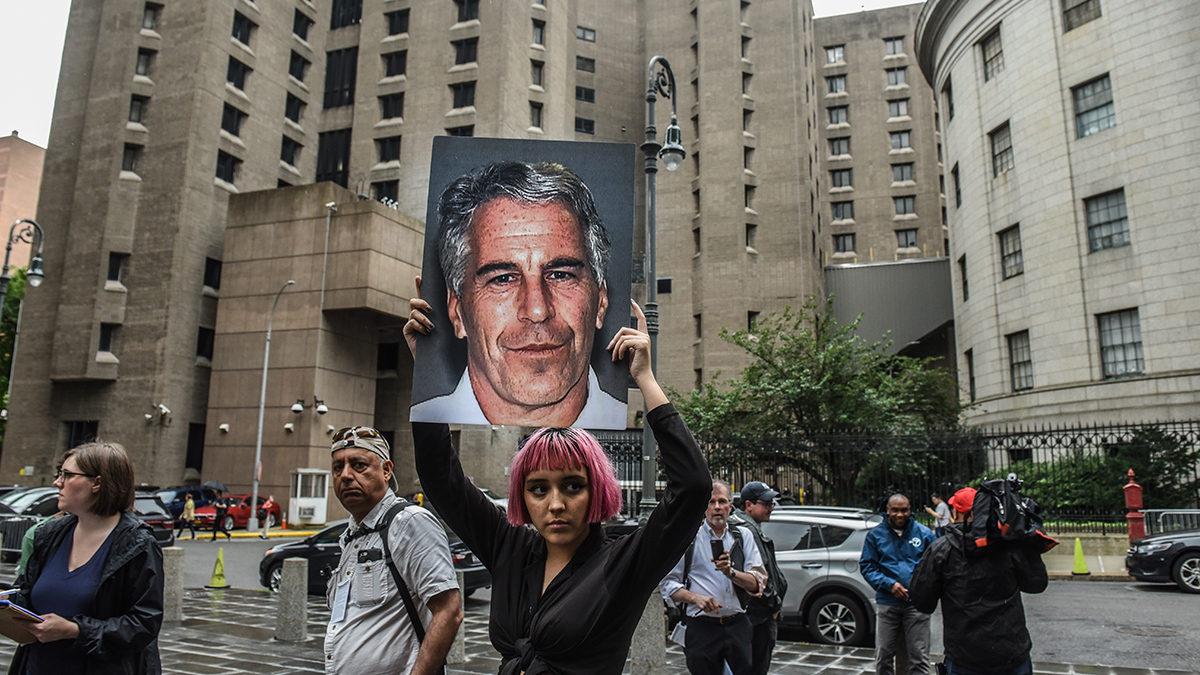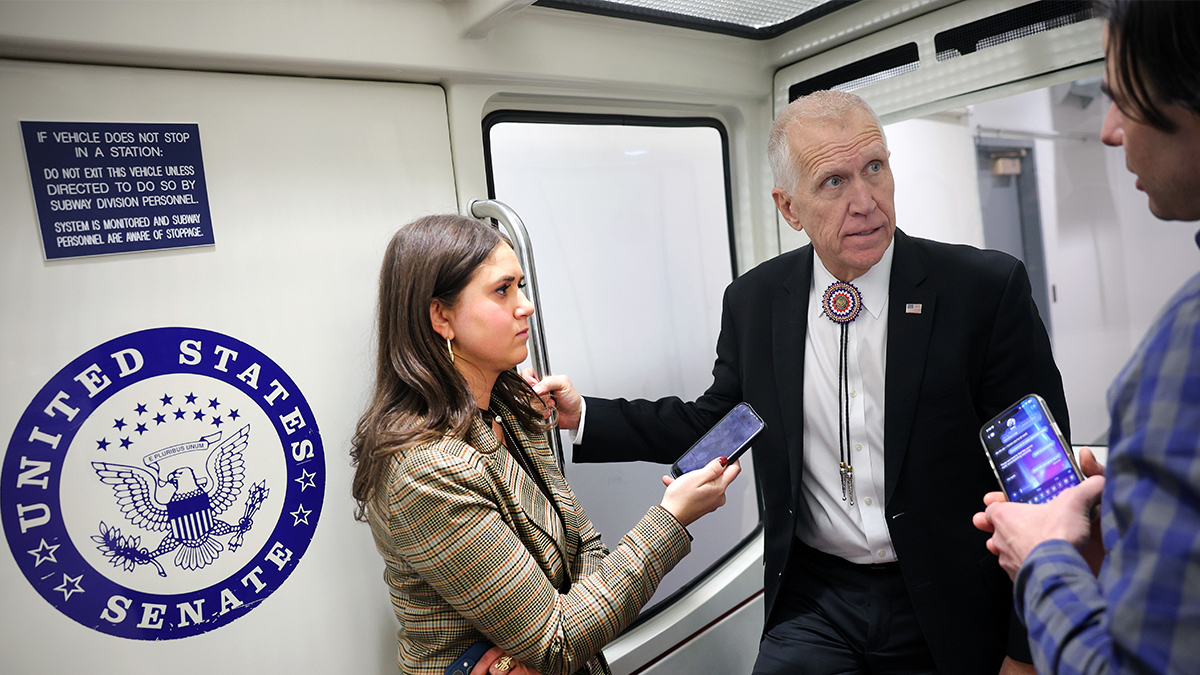The importance of being willing to find common ground may seem like a dying breed when it comes to U.S. politics, but it exists, buried deep beneath all the useless vitriol. The vice presidential debate between Sen. JD Vance and Gov. Tim Walz proves it. As an example, both Walz and Vance found common ground on the fact that gun violence is horrendous. This was encouraging as it’s only from this point of concordance that we can proceed towards an honest conversation on what can be done.
However, as is unfortunately expected, some people are getting hung up on the parts that do not matter in the grand scheme of things. Well, it matters to them because of confirmation bias, because it advances the narrative they believe and want others to buy into. So, it is unsurprising that, when Walz misspoke on the debate floor – likely because he was nervous, as reports from the day prior had already suggested he would be – some people took his words at face value.
Tim Walz’s gaffe sent the internet into a frenzy
When asked about why he changed his position on an assault weapons ban, Walz replied: “Yeah, because I sat in that office with those Sandy Hook parents. I’ve become friends with school shooters. I’ve seen it.”
In context, it is crystal clear Gov. Walz meant “school shooter victims.” The previous sentence explicitly refers to the grieving parents of the Sandy Hook Elementary victims, however, some people are being purposefully obtuse – I want to give them the benefit of the doubt and believe it is not a total lack of intelligence – and are using Walz’s unfortunate mistake to attempt to denigrate his image, and twist what his true beliefs are.
Some take it further, and make some wildly inflammatory suggestions:
Others have decided this mistake is proof Walz is the wrong VP pick:
I don’t know about you, but I find undeniable humanity in someone feeling nervous on a debate stage, watched by millions of Americans (and people throughout the world), yet who still staunchly advocates for their beliefs and values, as Walz did. It’s not like he’s nervous in every situation. He’s not nervous at rallies with thousands of people present.
Besides, I would rather have a guy who, even if riddled with nerves, honestly tells me about what he believes and what his values are, than a guy who confidently lies to my face again and again and again. Unfortunately, a confident lie often sticks harder in people’s brains than a wobbly truth.
Moreover, before his gaffe, Walz had already referred to the moment he met the parents of the Sandy Hook shooting victims: “As a member of Congress, I sat in my office surrounded by dozens of the Sandy Hook parents. And they were looking at my 7-year-old’s picture on the wall and their 7-year-olds were dead, and they were asking us to do something.” It should be obvious that it’s not the school shooters that Walz is friends with.
And, let’s be real for a moment: do we want to waste time picking apart misspoken sentences? Perhaps one ought to watch Donald Trump butcher every word in the English language before we discuss the topic of verbal hiccups. But that’s not where we truly need to focus our energy, is it?
What did the vice presidential debate have that the presidential debate lacked? Respect
One thing about this latest debate should not be overshadowed by all this useless chatter: more often than it happens in politics, the two candidates dared to step on common ground and maintain a respectful stance throughout. It was oddly refreshing. Take a look at the comments under the video on YouTube and you’ll see many taken aback by how civil the whole thing was.

By establishing common ground we can start formulating and enacting the solutions we desperately need to tackle the most pressing issues. One of them is gun violence, and, for those who did not stop listening after “friends with school shooters,” Walz made his stance on the issue clear. He showed that he’s deeply considered possible solutions – like mentioning Finland’s example, or the laws that have been enacted in his own state of Minnesota – and that’s what should matter in everyone’s minds at the end of the day.
Some may have considered the veep debate boring, particularly compared to the theatrics of the two presidential debates that took place this summer, but the fact that they seemed willing, at times, to express agreement, and to concede the other made a fair point feels particularly relevant to our insidiously polarized Western societies. While that may not make for an incredibly entertaining debate, it may well be what today’s political scene desperately needs.
Politics is a performance. Cleverly crafted slogans, charisma and confidence, ostensibly charitable actions broadcast for all to see, and inflammatory rhetoric play their roles in politics, because voters are swayed mainly by the emotions candidates evoke. In his book The Political Brain: The Role of Emotion in Deciding the Fate of the Nation, political messaging consultant and professor of psychology Drew Westen explains that voters do not choose candidates “by examining their positions on the issues, seeing who has the best positions on the most important issues.” In fact, “the best predictors of voting behavior are emotional, not cognitive.”
In the context of modern U.S. politics, this means that the electorate are most divided by issues that move them and trigger their moralistic impulses, where they channel their emotions, and how those, being inflamed by politicians and the media, are often incompatible with cooperation with the other side of the political aisle. This puts a hindrance on proactive dialogue, and without dialogue, there can be no meaningful, comprehensive solutions to prevalent social issues.











Published: Oct 2, 2024 04:33 pm